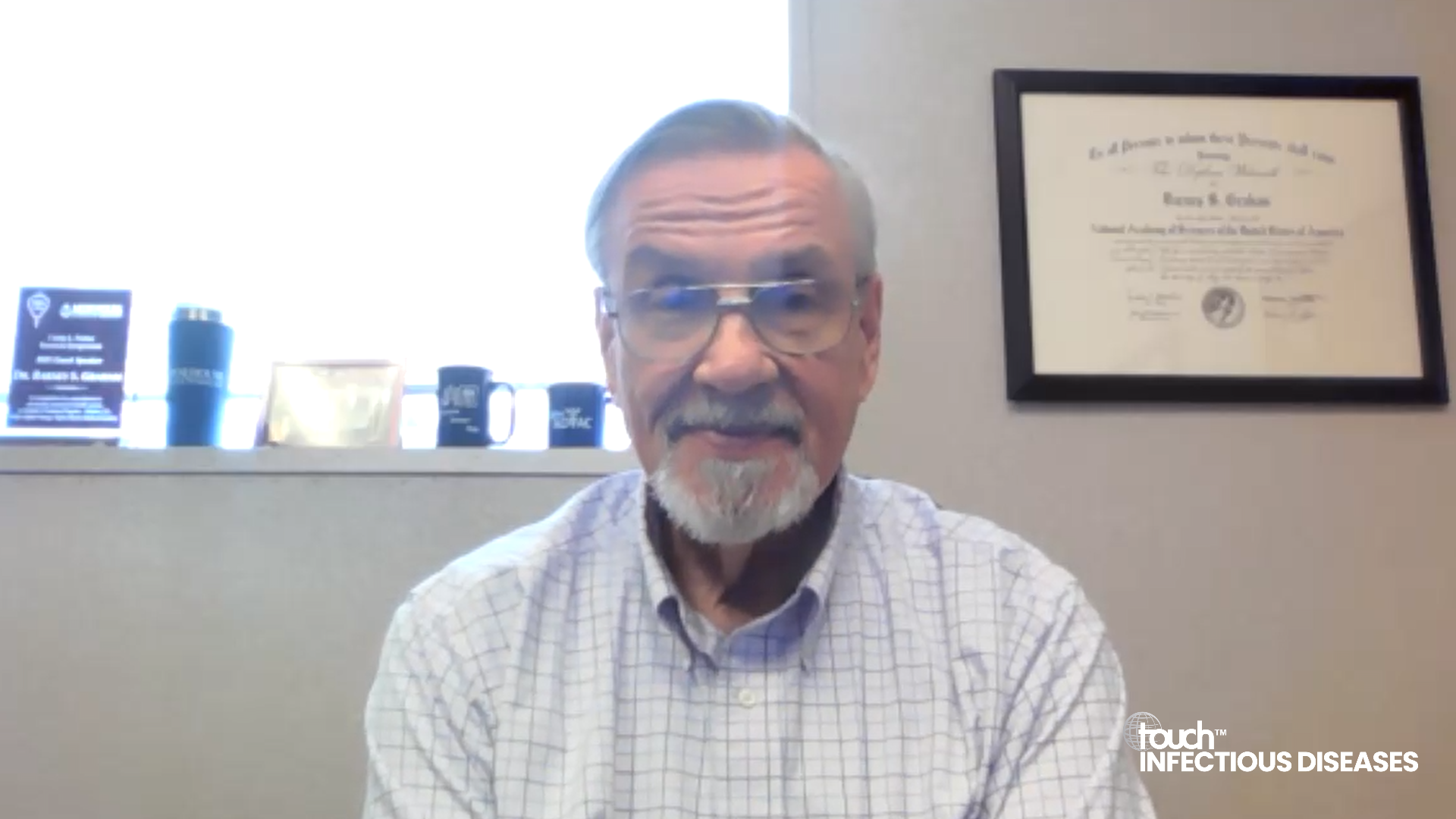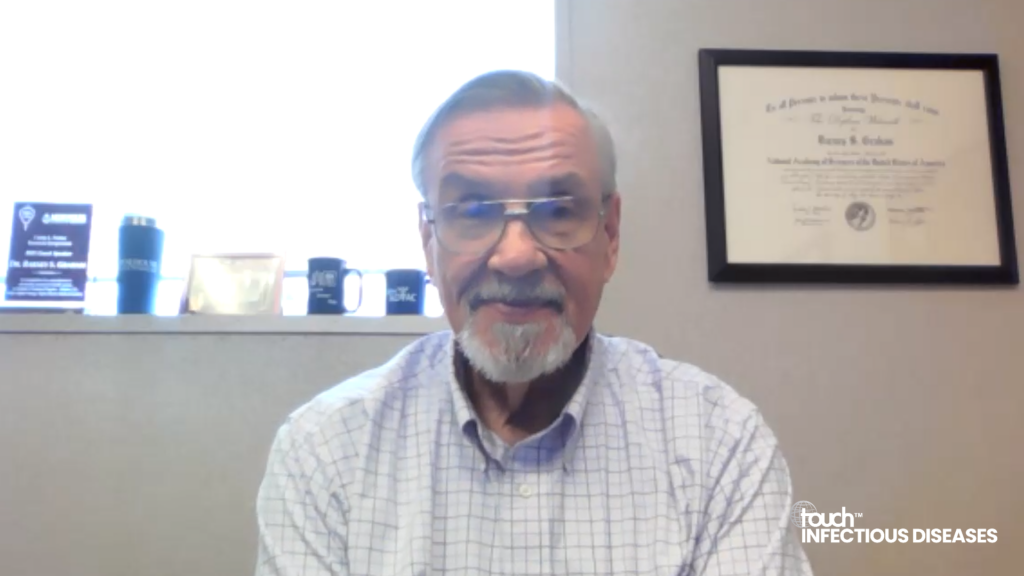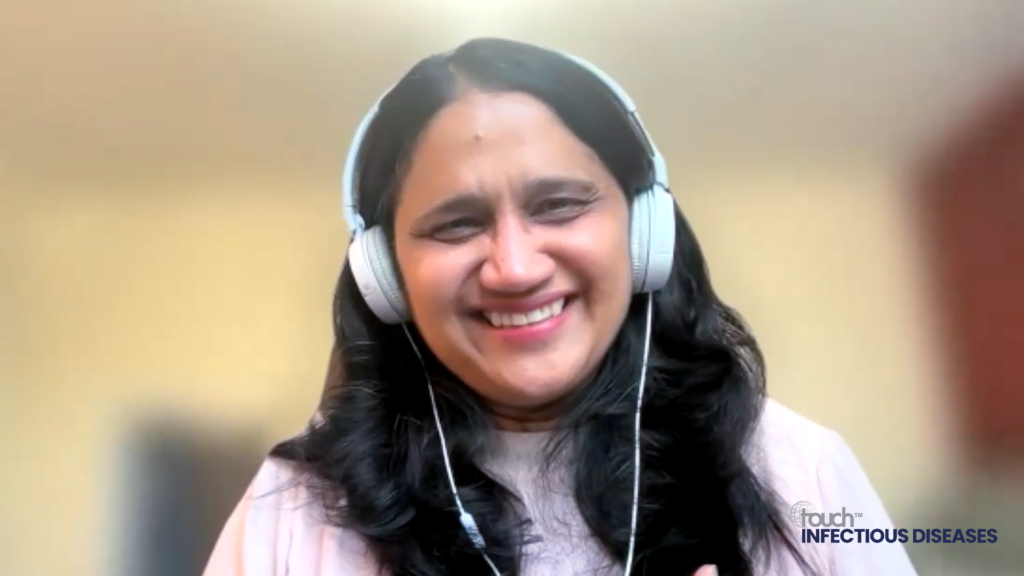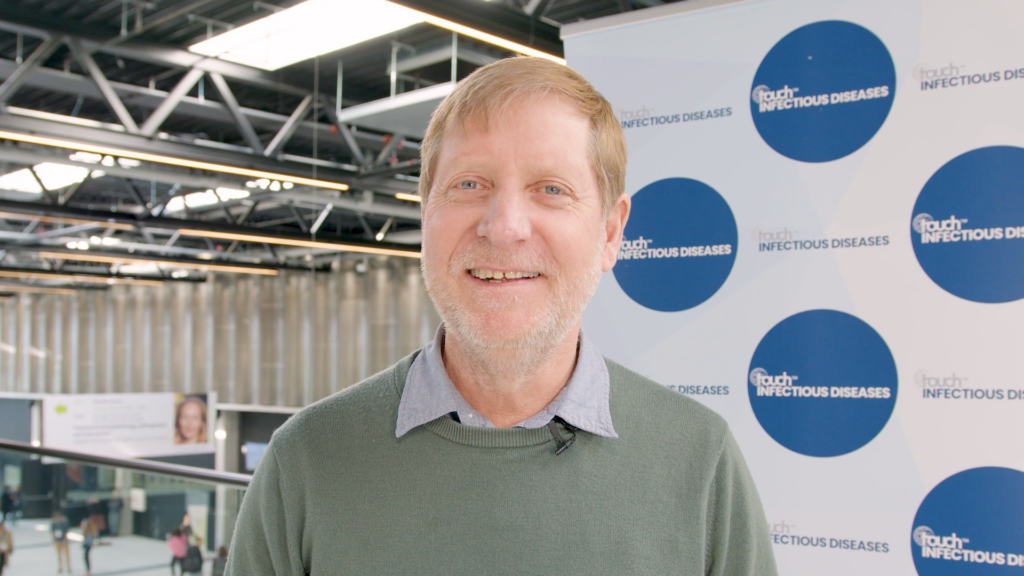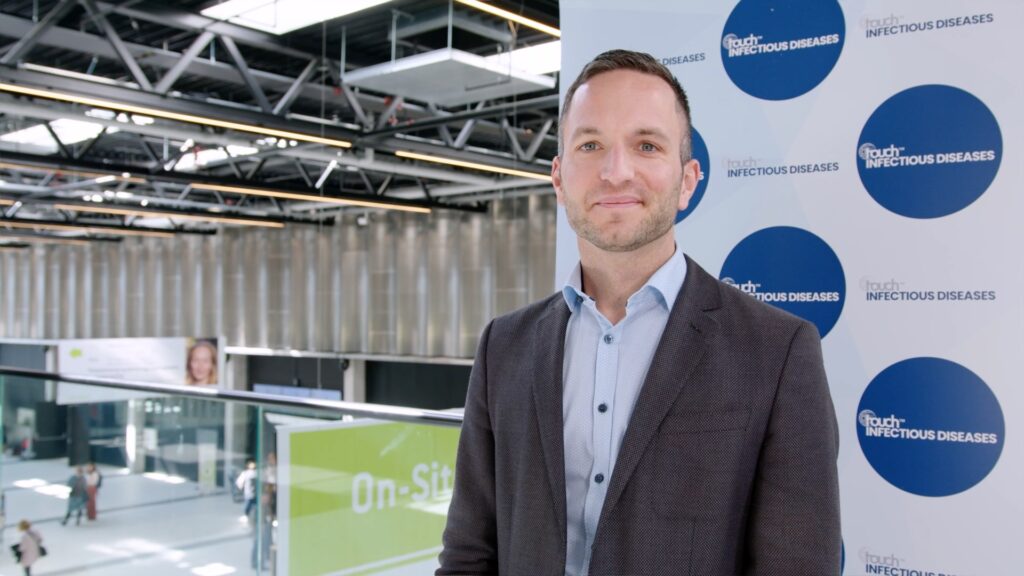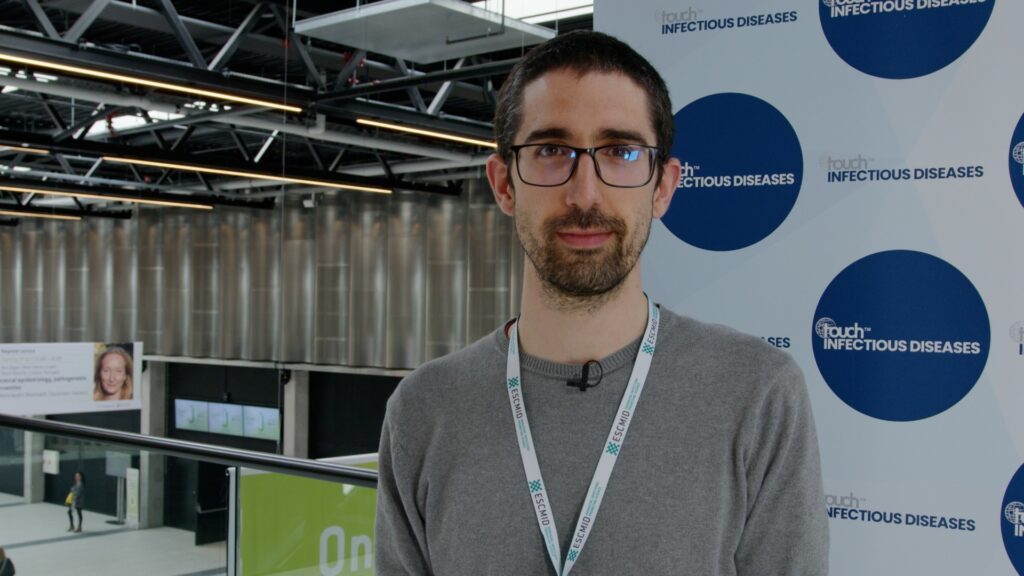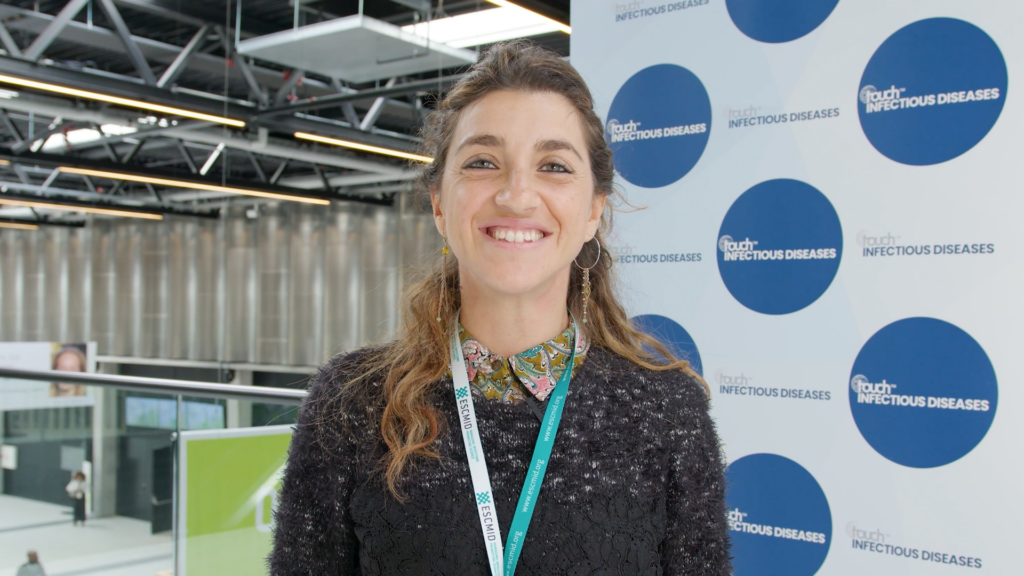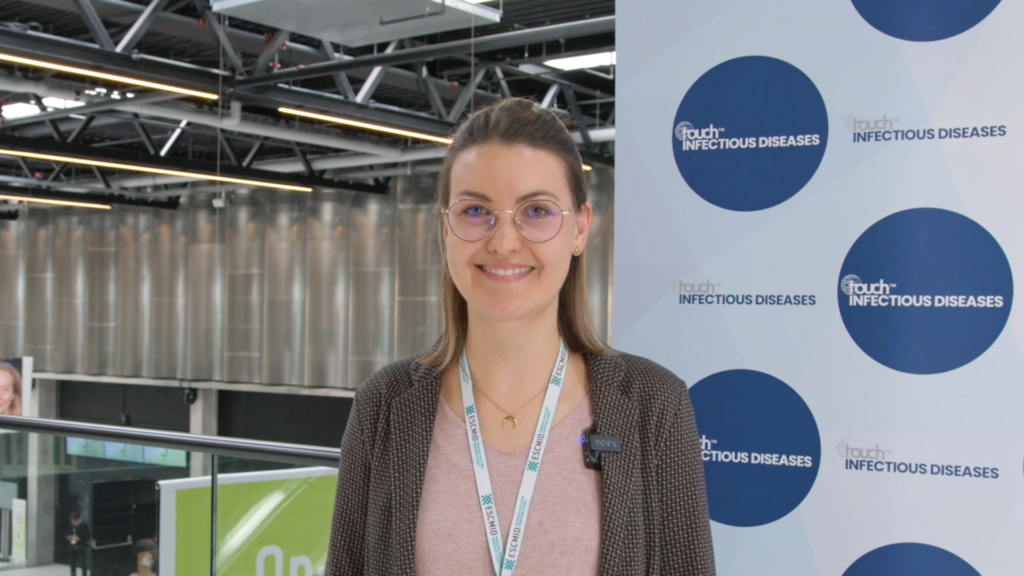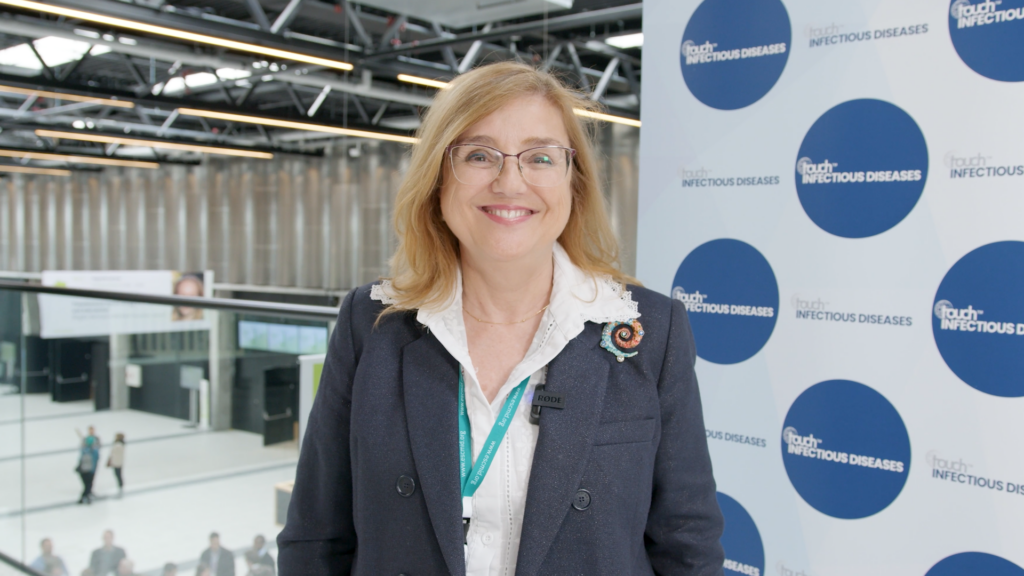PANORAMIC (ISRCTN30448031) was a multicentre, open-label, randomized controlled trial investigating novel treatments for COVID-19 in the UK. We were delighted to speak with Prof. Chris Butler (University of Oxford, Oxford, UK) to discuss the PANORAMIC study results, and how these insights will optimise the use of molnupiravir in clinical practice.
The abstract ‘Molnupiravir plus usual care versus usual care alone as early treatment for adults with COVID-19 at increased risk of adverse outcomes (PANORAMIC): findings from the United Kingdom randomised, controlled open-label, platform adaptive trial.‘ (Abstract number: O1118) was presented at ECCMID 2023, 15-18 April, 2023, Copenhagen, Denmark.
Questions
- What were the aims, design and inclusion criteria of the PANORAMIC study? (0:22)
- What were the key findings of your study? (2:25)
- How will these insights optimise the use of molnupiravir in the treatment of adults with COVID-19? (5:27)
Disclosures: Chris Butler discloses being the Chief Investigator of the NIHR funded PRINCIPLE and PANORAMIC trials of community treatment for COVID.
Support: Interview and filming supported by Touch Medical Media Ltd. Interview conducted by Katey Gabrysch and Victoria Jones.
Filmed in coverage of the 33rd European Congress of Clinical Microbiology & Infectious Diseases.
Click here for more content on COVID-19 & for further ECCMID 2023 highlights visit here.
Transcript
What were the aims, design and inclusion criteria of the PANORAMIC study? (0:22)
The UK government through the antiviral taskforce procured a supply of novel antiviral agents. And I think the vision of the Chief Medical officers, particularly Chris Whitty, Jonathan Van-Tam said, look, we got to make sure that we use these drugs in people who are going to benefit meaningfully. And at that time the pressure on the NHS was intense. Would these drugs be able as early treatments in the community to keep people out of hospital, stop them from deteriorating such that they need to go into a hospital?
So they put out a call for a trial, funding for a trial, and we applied along with others and were awarded the funding to do a trial to see whether treatment with novel antivirals helped reduce the need for hospital admission. Importantly, compared to usual care. So the question in the trial is: if we prescribe early on in the illness, one of these drugs, as opposed to not prescribing it, does that benefit patients in terms of their recovery and does it help keep them out of hospital? So that was the goal of the trial. At scale, early treatment in the community. What are the consequences of that for patients and for the health service? So hospital admission or death was the primary outcome. Obviously, we are looking at a whole lot of other things like recovery, health, economics, what’s the cost effectiveness and also what are the impact on the viruses, as we don’t want to make the same mistake as we did again with the antibiotics. We want to make sure that we’re not generating problems around viral resistance in generating new variants that could cause problems.
What were the key findings of your study? (2:25)
We started this trial at a time when this was perhaps one of the toughest moments in the history of clinical trials to do such a trial. We had our first patient in on the 8th of December 2021, and at that time, COVID was really wreaking havoc, of course, amongst the population, but also amongst the clinical staff and the trial staff. We had lots of sickness, lots of stress and was coming up to Christmas people on holidays as well. But over the next few months, we were actually the fastest recruiting clinical trial of an acute therapeutic ever. And on one day for example, we recruited and randomized over 500 patients, which was unprecedented. And by April we had randomized over 25,000 people to receive molnupiravir or not. And we could compare the outcomes. We achieved enough data to find out whether this drug reduced hospital admission or death and whether it helped people recover. And what we found was actually it didn’t. The vaccination rate of the population in the trial was very high. Most people, had had three vaccinations. And so that finding is so important because the pivotal trial done by the company that produced the drug found quite a dramatic difference on hospital admission if they used the drug. We needed to know, would that evidence apply to the UK and indeed developed countries or countries where people were multiply vaccinated? And actually we found that you couldn’t assume that evidence was applicable to the intended use population in this instance. But what we did find is dramatic differences, I think, in terms of how long it took people to recover. So people recovered on average on a mean of 6 days earlier. So that’s quite a lot. And when you’re sick with covid, six days is quite meaningful in my view. We also found that when people got better, they stayed better more often if they’d taken the drug. And COVID is a bumpy ride, often feeling better for a few days, and then suddenly you feel you’ve been, you know, rug’s been pulled under your feet and you’re back to square one. But molnupiravir more often achieved earlier recovery, but also people stayed well, they consulted their GPs a bit less often and so overall every symptom reduced sooner, and people got better a whole lot quicker.
How will these insights optimise the use of molnupiravir in the treatment of adults with COVID-19? (5:27)
So critically important is that at the moment when the current variant is circulating, hospital admission is a very rare event in the UK and in other developed countries. And if you are wanting to use a drug like molnupiravir to stop people from being admitted to hospital with COVID, it doesn’t make a difference on that outcome. However, if you are using the drug to help people recover quicker and stay well over 28 days, then there is a marked difference and a lot to gain from using the drug. Now, should people in the general population receive this drug when they’ve got covid? I guess that’s for others to decide. That’s for NICE and people to make guidelines to figure out. My job is to produce evidence for them to interpret. But what I would say, it’s going to be context specific. It’s going to depend on how sick people are from COVID at that particular time. And that’s changing all the time. And it’s going to depend on what the pressures on the systems are, because we found in the virology side of it that people secreted the virus less if they took the drug and they recovered quicker. So you can imagine a situation when systems are under huge pressure, that people could get back to work more often and probably would be less infectious if they took the drug. So maybe key workers, nurses, prison warders, police drivers, supermarket workers and so forth, in terms of intense pressure on all these systems, may well benefit from taking this drug. But that those decisions are context specific and other people must make them.
Subtitles and transcript are autogenerated.

